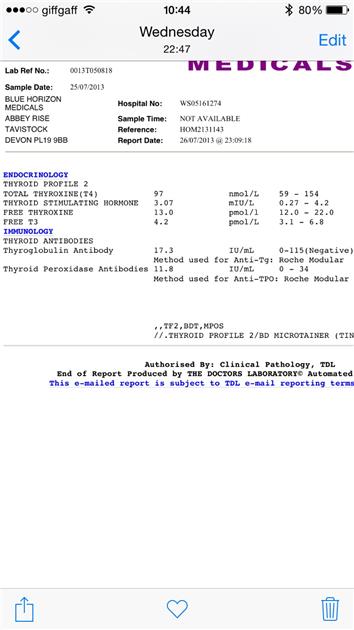I have been unwell for over 2 years now with varying symptoms. Just over a year ago I was diagnosed with B12 deficiency and vitiligo. I also had my gallbladder removed and have high blood pressure now which I have never had a problem with before.
I have many symptoms the main ones of which are extreme lethargy, no energy, tired all the time, don't sleep properly, light headedness, dizziness, poor balance feels like I'm walking to one side, fuzzy head. I have lost my libido and no matter how hard I try to lose weight it won't shift.
Over the past couple of months I feel like there is a lump in the right side of my throat and can feel it more when I swallow. It doesn't hurt but is very annoying.
I have my thyroid tested in July 2013 and have enclosed the results. My mum suffers with hypothyroidism and has done for years.
Is it worth me getting my TSH tested again and do you think all could be linked to hypothyroidism? Thank you for your help.
